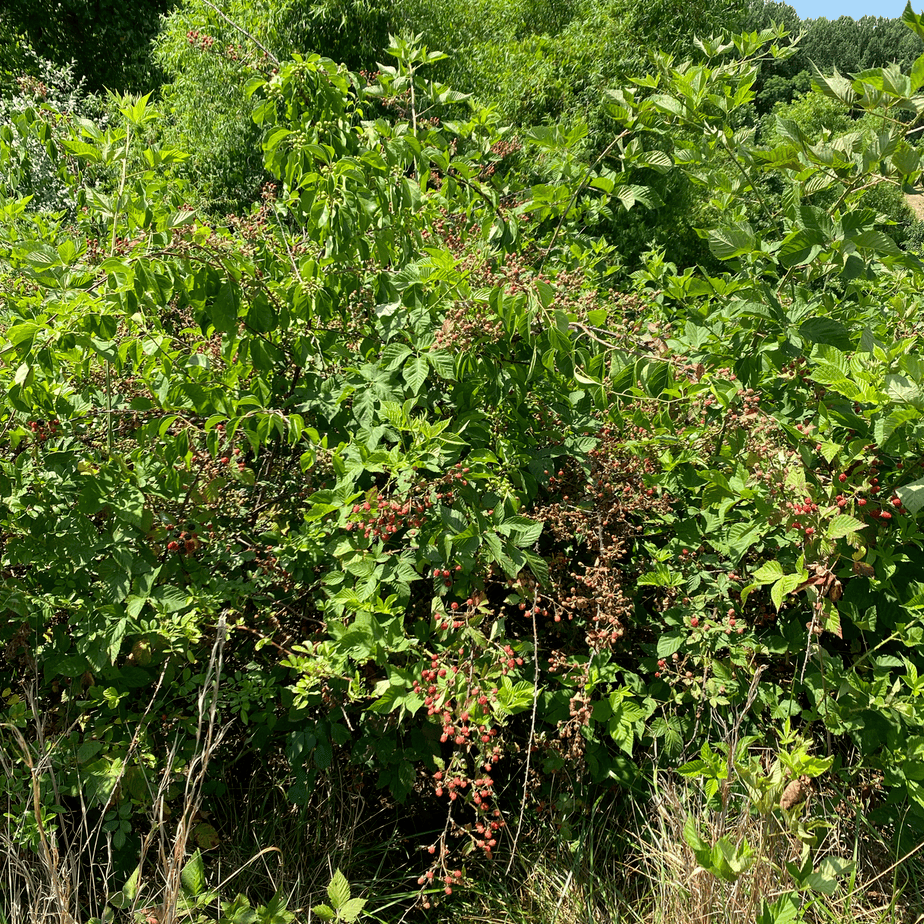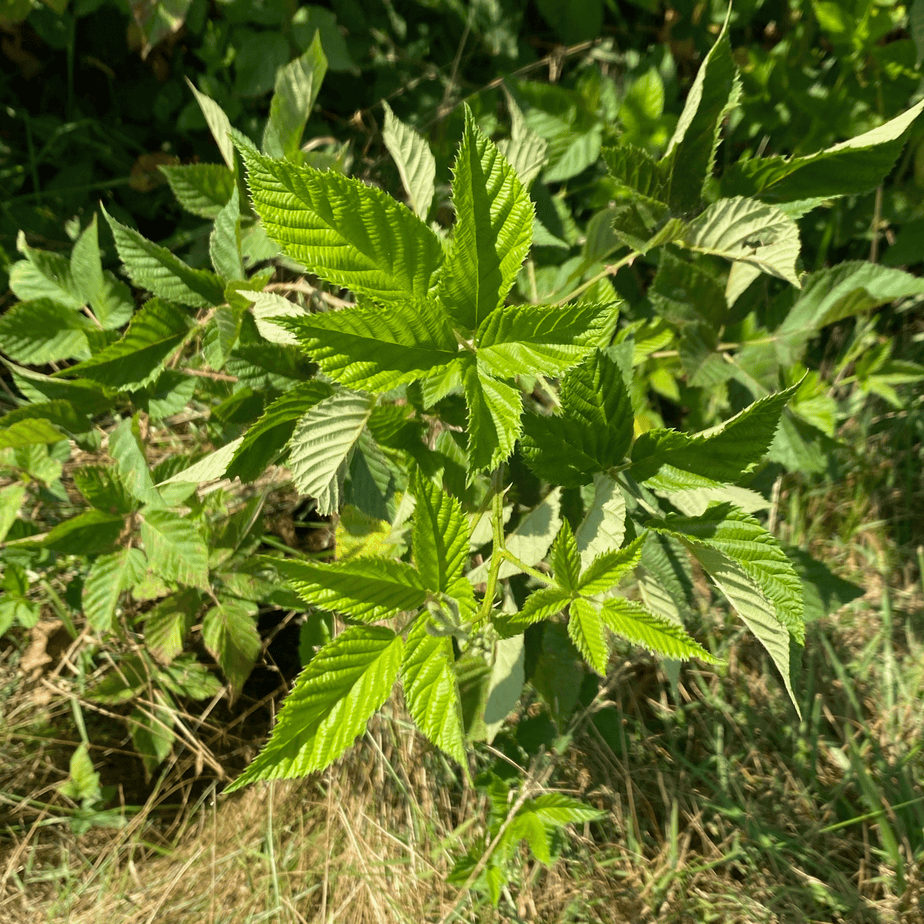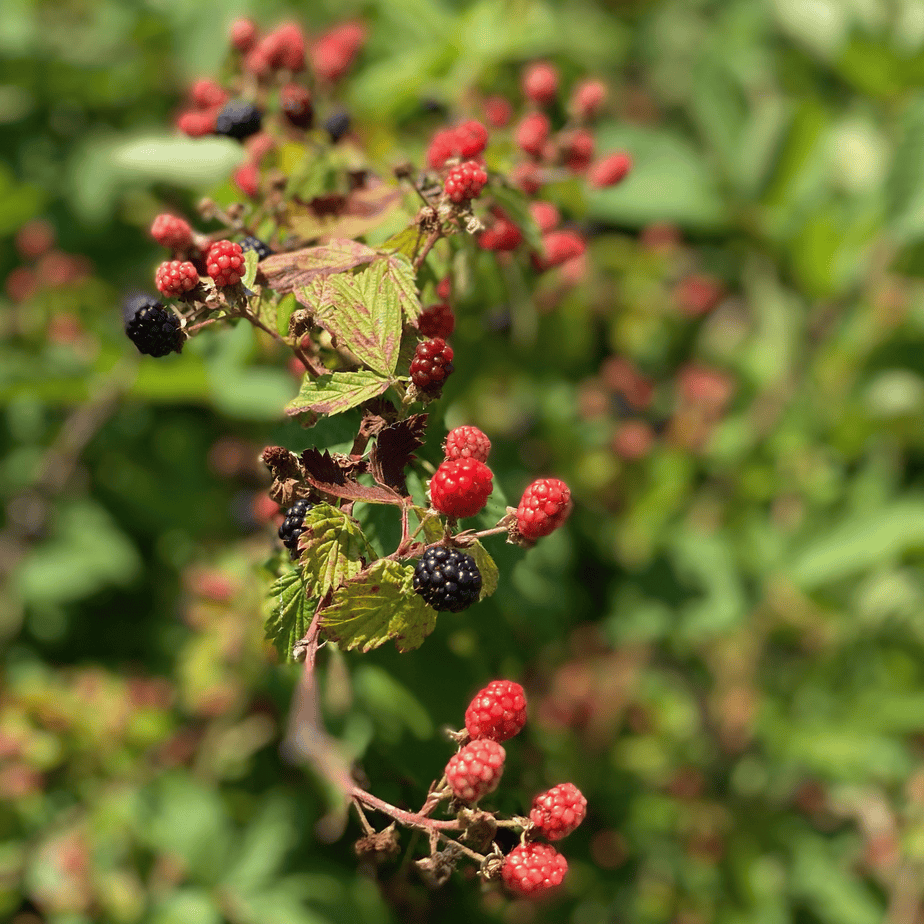It's almost July and blackberries are here! Blackberries are incredible wild, edible berries that grow prolifically in many areas of Virginia. Read on to find out more about this amazing berry.
Blackberry Identification
Blackberries are relatively easy to identify. There are look a-likes, however, none of them are dangerous. The most common look alike is dewberries. These berries have different growing patterns. As a result, they are very easy to distinguish from blackberries. First, let's talk about the berry in question. These plants grow canes, similar to wild raspberries. Canes are long stalks that grow relatively upright, but then bend gracefully as they get longer. You can find single plants, however when left unchecked, they grow in massive groves of plants. This is somewhat similar to bramble, but the bramble grows more upright like large bushes, not dominated by canes. Conversely, dewberries are considered a trailing bramble. They rarely reach more than 2' in height. Dewberries also produce larger fruits, but I don't think that is a reliable way to distinguish the two plants.
Other defining characteristics are the large, nasty, thorns on blackberry plants. These are hard to miss. The leaves have pointed ends with toothed edges. Leaves usually grow in clusters of five. Conversely, dewberry leaves are teardrop shaped with smooth edges. These leaf differences make identification relatively simple.
Nutrition and Uses
There are lots of great things about blackberries. First, and one of the best things about wild blackberries, is that they are not treated with chemicals. It's nearly impossible to purchase any edible fruit or vegetable that isn't treated with chemicals. Second, they contain 50% of the daily recommended vitamin C and about 32% of the daily recommended fiber. Second, they contain trace amounts of magnesium, potassium, and iron. Third, they are full of antioxidants. It's alway good to add a "purple' food to your diet. Finally, blackberries contain some less common, but important nutrients. One cup provides almost 30% of your daily dose of vitamin K and almost half of manganese.
Blackberries are mainly known for their use in cobbler, however they can be used in almost any recipe that calls for berries. Be creative and use them in muffins, pies, ice creams, and more.


